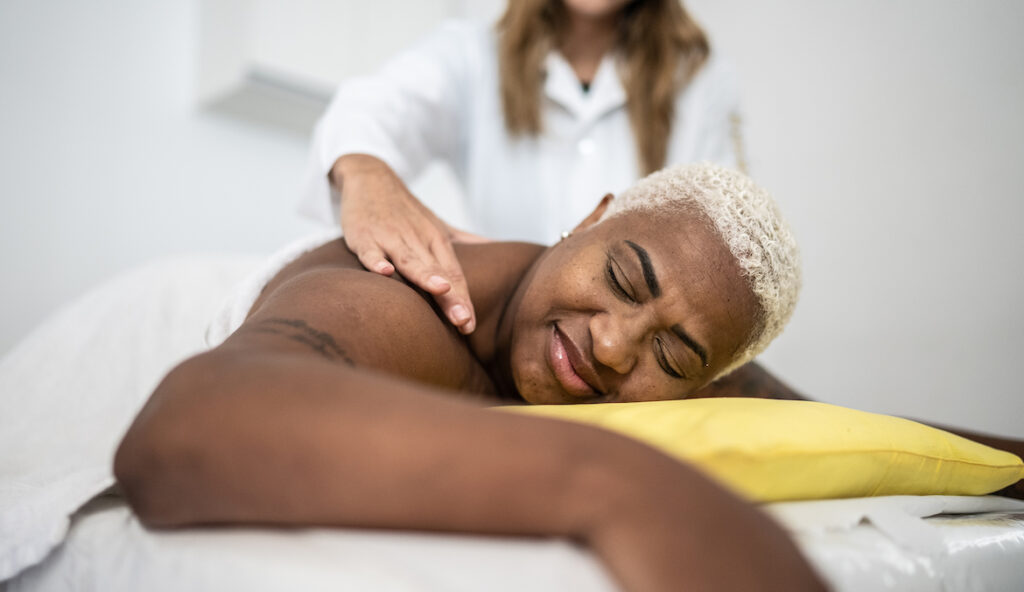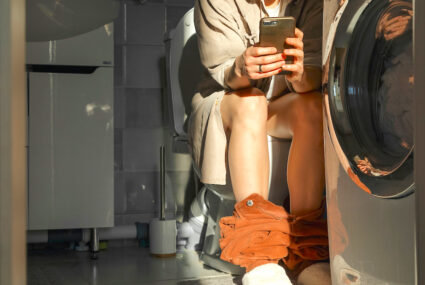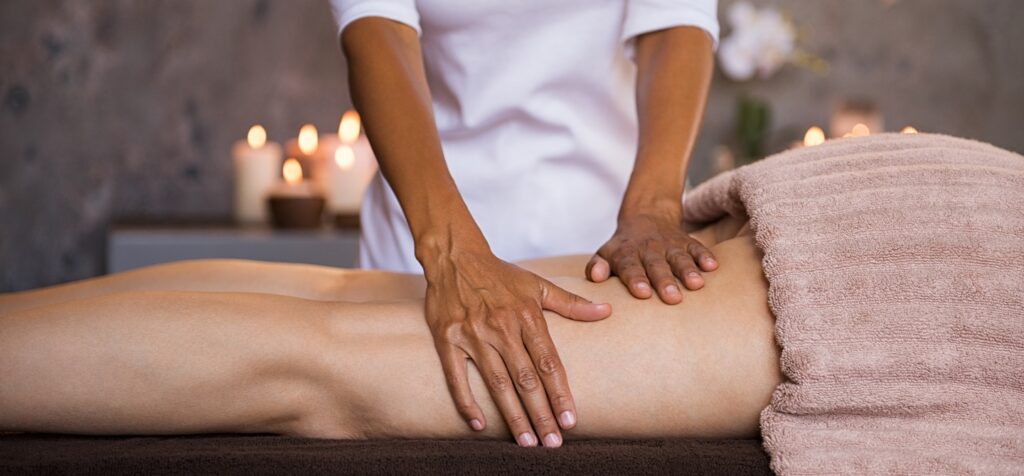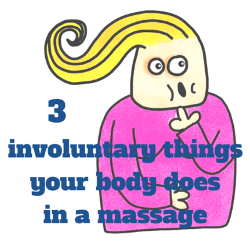Do you ever wonder why you have to pee a lot after a massage? In this article, we will explore the reasons behind this post-massage phenomenon. Whether you are a frequent recipient of massages or just curious, this article will provide you with the answers you seek. So, let’s dive in and uncover the truth behind the urge to urinate after a relaxing massage.
Do You Have To Pee A Lot After A Massage?
Have you ever experienced the need to use the bathroom frequently after a massage? You’re not alone! Many individuals notice an increase in urine frequency following a massage session. While it may seem like a curious phenomenon, there are several possible reasons for this occurrence. In this article, we will explore the potential causes of frequent urination after a massage and provide insights into managing post-massage symptoms.
Increased circulation and fluid movement
During a massage, one of the major benefits is improved circulation. The stroking and kneading techniques employed by the massage therapist stimulate blood flow to various parts of the body. As blood circulates more efficiently, it brings oxygen and nutrients to the tissues while removing waste products. This increased circulation may also encourage fluid movement throughout the body, including the urinary system.
Relaxation of the bladder muscles
Massage therapy is known to promote deep relaxation and release tension in the muscles throughout the body. The bladder, which is also a muscle, can benefit from this relaxation as well. When the bladder muscles are in a relaxed state, it may become easier for your body to signal the need to urinate. Therefore, you may experience a more frequent urge to pee after a massage.
Effect of massage on the lymphatic system
In addition to enhancing circulation, massage therapy can also have a significant impact on the lymphatic system. The lymphatic system plays a crucial role in eliminating toxins and waste from the body. Through the gentle pressure and rhythmic movements performed during a massage, lymph flow can be stimulated, aiding in the removal of waste and toxins.
Stimulation of lymph flow
The lymphatic system relies on movement and muscle contractions to propel lymph fluid throughout the body. Massage techniques, such as light strokes and gentle stretching, can encourage the flow of lymph, aiding in the removal of metabolic waste products. This stimulation of lymph flow may contribute to an increased need to urinate as the waste is filtered out through the kidneys.
Removal of toxins and waste
As the lymphatic system functions optimally with the help of massage, toxins and waste products are effectively removed from the body. The elimination of these substances can have a detoxifying effect, promoting overall well-being. This detoxification process may manifest as an increased need to urinate, as the body works to rid itself of accumulated waste.

This image is property of www.wellandgood.com.
Release of tension and stress
Massage therapy has long been recognized as an effective method for reducing tension and alleviating stress. When you receive a massage, your body enters a state of deep relaxation, allowing your nervous system to unwind and reset. This release of tension can have various effects on your body, including encouraging relaxation and relieving stress-related symptoms.
Impact on the nervous system
The autonomic nervous system controls many bodily functions, including the urinary system. Through the soothing touch and gentle pressure of massage, the parasympathetic nervous system, responsible for promoting rest and relaxation, is activated. This activation can lead to a decrease in stress hormones and an overall calming effect on the body. As a result, the urge to urinate may become more pronounced.
Encourages relaxation and relief
Anxiety and stress can impact our bodily functions, including urinary patterns. Massage therapy’s ability to reduce stress and induce relaxation can indirectly affect the urinary system. By promoting a sense of well-being and providing relief from tension, massages may help individuals better recognize their body’s need to urinate.
Hydration and fluid intake
The importance of staying hydrated cannot be understated, especially when it comes to maintaining urinary health. Maintaining an adequate fluid intake is crucial for optimal bodily functions, including urine production. The impact of massage on the urinary system can be influenced by proper hydration.
Importance of staying hydrated
To support a healthy urinary system and ensure optimal urine production, it is vital to drink an adequate amount of water daily. Water helps flush out toxins, maintain balance in electrolytes, and support overall kidney function. By staying hydrated before and after a massage, you can help your body efficiently eliminate waste and reduce the chance of feeling the need to pee frequently.
Effects on urine production
When you drink water, it passes through your kidneys, where waste products are filtered out to form urine. Hydration status can directly affect urine production, as a well-hydrated body produces more urine to eliminate waste. If you are adequately hydrated before a massage, the increase in fluid movement can prompt an increased need to urinate as your body flushes out toxins and waste.

This image is property of www.wellandgood.com.
Massage techniques and pressure points
Massage therapy involves the manipulation of specific points and areas on the body, which can have a profound impact on various bodily systems. Depending on the techniques used and the pressure applied, massages can influence the urinary system and potentially affect urine frequency.
Manipulation of specific points
Massage therapists are skilled in targeting specific areas of the body using various techniques. Some techniques, such as acupressure, focus on specific pressure points that are believed to promote specific effects in the body. These pressure points may directly or indirectly impact the urinary system, potentially affecting urine frequency.
Influence on the urinary system
The urinary system comprises the kidneys, bladder, ureters, and urethra. As massage techniques are performed on different areas of the body, including the lower back and abdomen, it is possible to indirectly stimulate the urinary system. This stimulation may lead to an increased urge to urinate as the body responds to the therapeutic touch.
Individual variation in response
It is essential to recognize that individuals may have different reactions to massage therapy and its effects on the body. Factors such as overall health, medication use, personal sensitivity, and stress levels can all contribute to varying responses in urine frequency after a massage.
Different reactions for different people
Each person’s body is unique, and what works well for one individual may have a slightly different effect on another. While some individuals may experience an increased need to urinate after a massage, others may not notice any change at all. It is important to pay attention to your body’s signals and consult with a healthcare professional if you have any concerns.
Consideration of personal factors
Several personal factors can influence how your body responds to a massage. Chronic health conditions, medications, and lifestyle choices such as diet and exercise can affect how your body eliminates waste. By considering these personal factors, you can better understand how your body may respond to a massage and any subsequent changes in urine frequency.

This image is property of www.humnutrition.com.
Post-massage recommendations
While frequent urination after a massage is typically a harmless occurrence, individuals can benefit from following a few post-massage recommendations to ensure optimal comfort and well-being.
Suggested bathroom breaks
If you find that you need to use the bathroom frequently after a massage, it can be helpful to schedule regular bathroom breaks to relieve yourself. By doing so, you can prevent any discomfort or interruptions during your massage session and allow your therapist to focus on providing the best care possible.
Monitoring urine frequency
If you experience a significant increase in urine frequency that persists beyond the immediate post-massage period, it may be worth monitoring your urine output for a day or two. This can help you determine if the changes are transient or indicative of an underlying issue. If you notice any concerning or persistent symptoms, it is advisable to consult a healthcare professional for further evaluation.
Consulting a healthcare professional
While frequent urination after a massage is typically a benign occurrence, persistent or bothersome symptoms should not be ignored. If you are experiencing prolonged changes in urine frequency or have concerns about your urinary health, it is essential to consult with a healthcare professional for further evaluation and guidance.
Seeking advice for persistent issues
If you notice a consistent increase in urine frequency after multiple massage sessions or if the symptoms persist for an extended period, it is prudent to seek advice from a healthcare professional. They can help determine if there are any underlying factors contributing to the symptoms and provide appropriate recommendations for management.
Discussion about underlying causes
A healthcare professional can perform a thorough evaluation to identify any potential underlying causes for frequent urination after a massage. The discussion may involve exploring factors such as bladder function, urinary tract infections, or medication side effects. By addressing these underlying causes, appropriate treatment or management strategies can be implemented.

This image is property of evergreenclinic.ca.
Managing post-massage symptoms
While increased urination frequency after a massage is generally temporary, there are some self-care strategies you can employ to optimize comfort and well-being during this time.
Taking it easy after a session
After a rejuvenating massage, it is important to allow your body to relax and recover. Avoiding strenuous activities and giving yourself time to rest can help your body adjust to the changes induced by the massage. This self-care practice can also contribute to overall relaxation and well-being.
Self-care for optimal comfort
In addition to resting, you may find it helpful to engage in activities that promote comfort and relaxation. This can include drinking plenty of water to stay hydrated, engaging in light stretches or yoga, taking warm baths, or using heat therapies on any areas of tension. These self-care practices can support the body’s natural healing process and enhance the benefits of your massage experience.
Conclusion
If you find yourself needing to use the bathroom frequently after a massage, rest assured that it is a common occurrence with various potential causes. Factors such as increased circulation, relaxation of bladder muscles, stimulation of the lymphatic system, and the release of tension can contribute to this phenomenon. It is essential to stay hydrated, monitor urine frequency, consider individual factors, and seek professional advice for persistent symptoms. By understanding and managing post-massage symptoms effectively, you can fully enjoy the positive effects of your massage therapy experience.

This image is property of totalhealthbrookvale.b-cdn.net.
